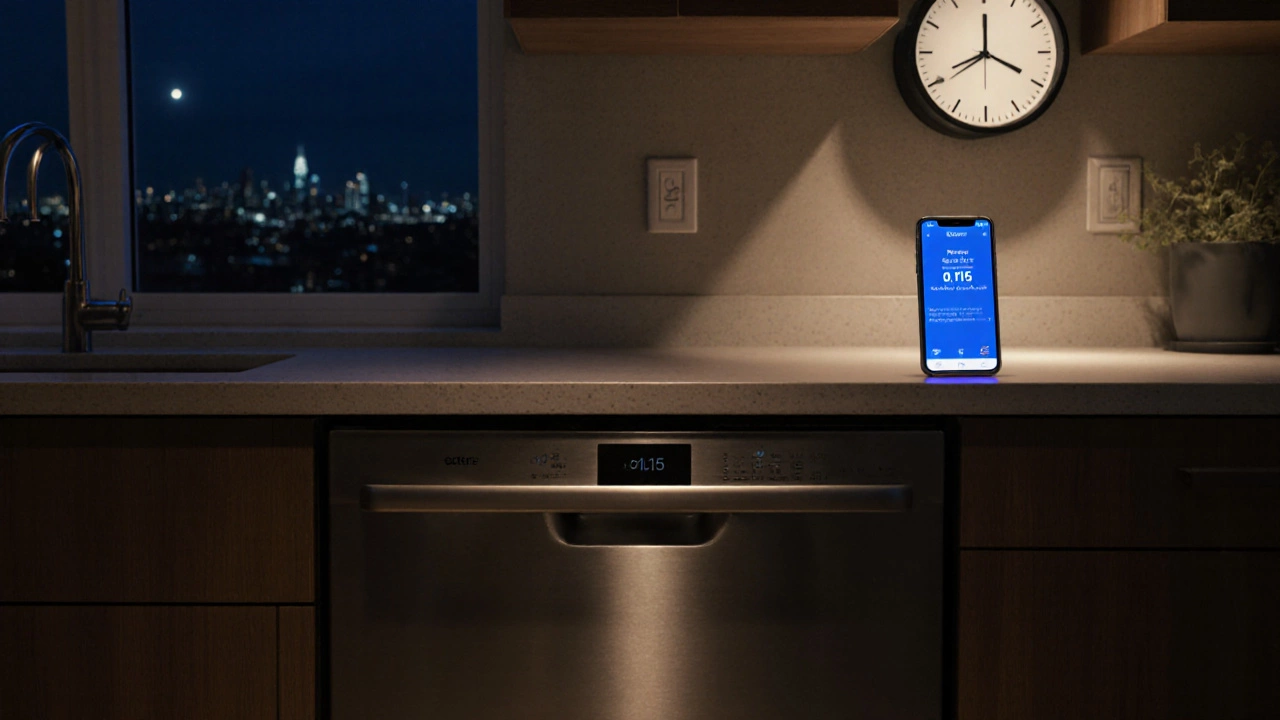When you Running dishwasher at night, the practice of programming your dishwasher to start its cycle during low‑cost, low‑demand hours. Also known as night‑time dishwasher scheduling, it helps lower electricity bills, reduces your carbon footprint, and keeps the kitchen quiet while everyone else sleeps.
One of the biggest drivers behind this habit is Off‑peak electricity, the cheaper power supplied during evenings, nights and weekends. Utilities in the UK often use time‑of‑use (TOU) tariffs that charge less when overall demand dips. By syncing your dishwasher with those cheaper windows, you tap into a natural cost‑saving mechanism – run dishwasher at night and watch the meter run slower.
The link between Time‑of‑use rates, pricing structures that vary by hour of the day and your household budget is straightforward. A typical UK household can shave 10‑15% off the dishwasher’s annual electricity expense simply by shifting the wash to the 10 pm‑6 am window. That savings translates into a lower carbon bill too – the grid runs greener at night because more base‑load plants (often nuclear or renewables) meet demand, while fewer fossil‑fuel peakers fire up.
Noise is another hidden benefit. Modern dishwashers can churn at 70 dB or louder. Running them while the living room TV is off means no one hears the hum, and you avoid waking early birds. The quiet factor is especially valuable in open‑plan homes where the kitchen faces the lounge.
Getting the most out of night cycles often requires Smart home automation, devices or apps that can schedule appliances based on electricity rates and user preferences. A Wi‑Fi enabled dishwasher can be linked to your utility’s price‑alert API, or you can set a simple timer on your router‑controlled smart plug. This automation creates a seamless loop: the system monitors off‑peak windows, triggers the dishwasher, then notifies you when the cycle finishes.
From a practical standpoint, you don’t need a fancy hub to start. Most UK dishwashers now include a “Delay Start” button that lets you set a 2‑ to 12‑hour wait. Just load the machine after dinner, hit delay, and let it kick off at 11 pm. If you’re keen on precision, an inexpensive smart plug paired with the utility’s TOU schedule can shut off the power during peak hours and turn it back on when rates dip.
Maintenance also improves when you run cycles at cooler ambient temperatures. The motor and pump stay a bit cooler overnight, which can extend component life. In fact, studies by the Energy Saving Trust show that appliances operating in stable, lower‑temperature environments experience 5‑7% less wear over a typical 10‑year lifespan.
For renters or homes without programmable dishwashers, the principle still applies. Simply load the machine after the last meal, close the door, and set the built‑in delay. Even a one‑hour shift from 8 pm to 9 pm can capture a cheaper rate if your supplier offers a “night‑off‑peak” band starting at 10 pm.
Putting it all together, the semantic chain looks like this: Running dishwasher at night leverages off‑peak electricity, which is priced lower by time‑of‑use rates. Those rates are monitored by smart home automation, which triggers the appliance at the optimal moment, delivering both cost and environmental gains while keeping noise down. This chain of cause and effect is the backbone of modern energy‑savvy living.
Below you’ll find a curated set of articles that break each piece down further – from real‑world savings calculations to step‑by‑step guides on automating your dishwasher, plus tips on choosing a model that works best with night‑time cycles. Dive in and start saving without changing your routine.

Explore whether using a dishwasher at night actually cuts electricity costs. Learn about time‑of‑use rates, calculate savings, and get tips to maximize efficiency.